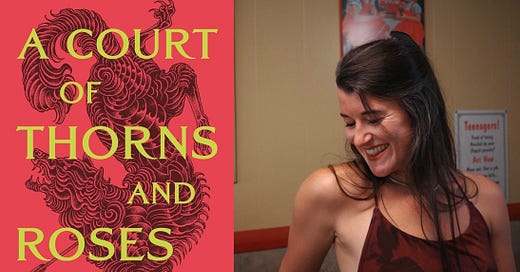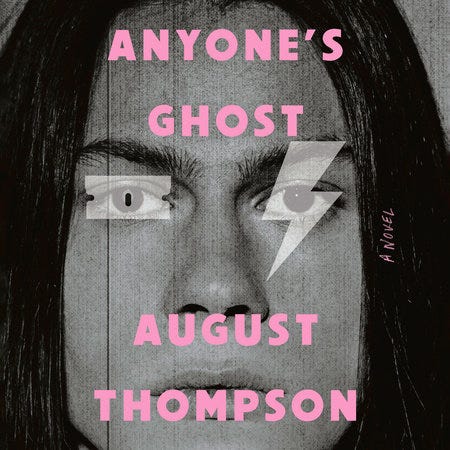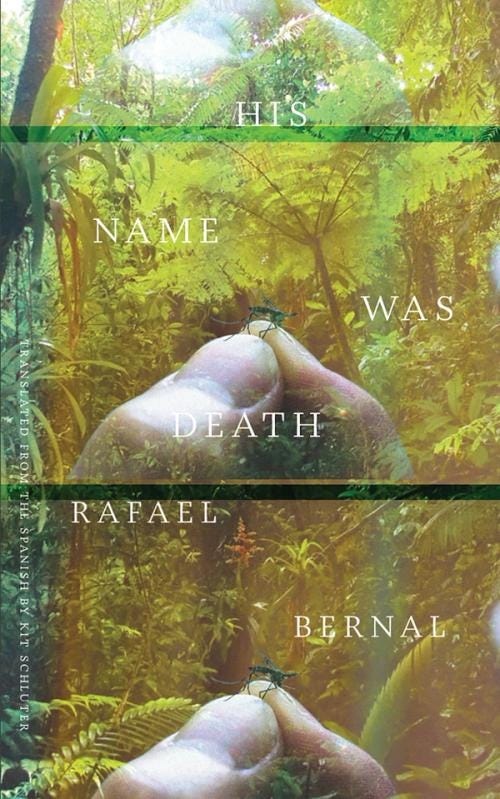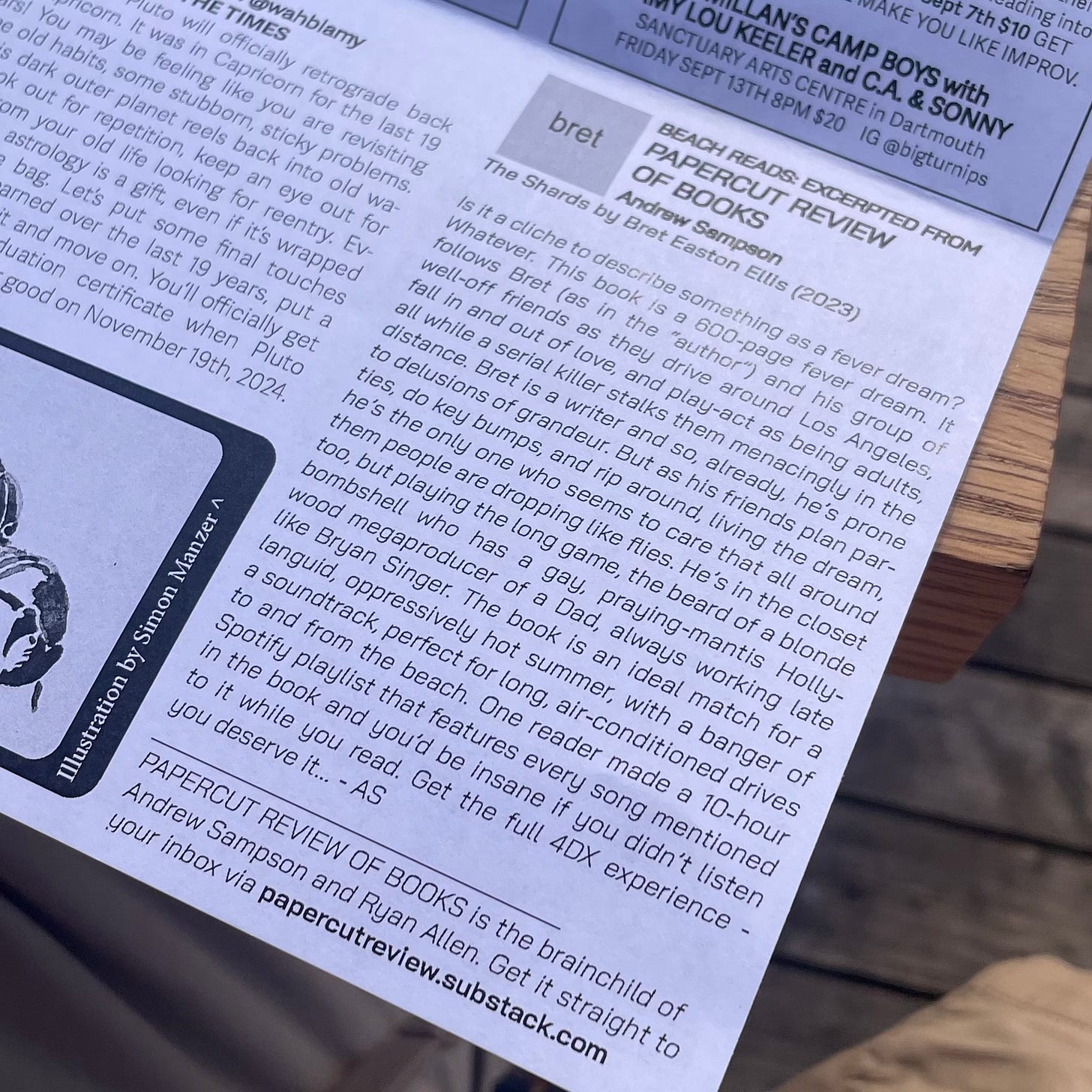It was queer, sultry summer, the summer they electrocuted the Rosenbergs, and Ryan didn’t have a clue what he was doing.
This week, Papercut is back for Beach Reads, Vol. 2.
Stay tuned for the usual reviews from Ryan and I, plus, in a PAPERCUT EXCLUSIVE™, a guest spot from Taylor Mooney aka DJ GROCERIES (find her on Soundcloud or IG), who joins us to crack open the cult of personality surrounding Wattpad’s favourite author, Sarah J Maas.
Horny faeries to the front…
-Andrew
A Court of Thorns and Roses by Sarah J. Maas
I read the first three books of Sarah J. Maas’s A Court of Thorns and Roses (ACOTAR) series this winter. I’m going to tell you why I read them, and some of my thoughts on them. I will warn you: If you think I’m going to roll into this fancy literature newsletter and call SJM works tasteless, you’re wrong! These books saved my brain in a time of need.
I tend to be a night-time reader. At my best, I’m using a book to resist the temptation of the infinite scroll before I sleep. But sometimes, I find it difficult to focus. My eyes will move across the page, but I’m not absorbing the words. This winter, I experienced a particularly painful breakup, and I found myself too distressed to read. I used the infinite scroll like a soother.
These circumstances and an impulsive decision led me to Guatemala City, where I stayed for two months with one of my dearest friends, Carly. When the topic of what we were reading arose, she told me she had a lot on her mind too, and couldn’t focus on anything other than Sarah J. Maas novels. She described them as candy for the brain. She didn’t think I would like them because she thought me to favour “serious” books. But candy for the brain sounded perfect, and so I picked up A Court of Thorns and Roses.
These are some incredibly tropey novels. It’s like Beauty and the Beast. It’s like Twilight. There are faeries. There’s a rags to riches arc. There is an evil queen. And yes, there is a horny captivity plotline.
Here’s a sample bit of dialogue:
“What do you care?" I barked, and his grip tightened enough on my wrists that I knew my bones would snap with a little more pressure.
"What do I care?" he breathed, wrath twisting his features. Wings - those membranous, glorious wings - flared from his back, crafted from the shadows behind him. "What do I care?"
But before he could go on, his head snapped to the door, then back to my face. The wings vanished as quickly as they had appeared, and then his lips were crushing into mine.
The plot revolves around a character named Feyre, a poor huntress who is her family’s sole provider. She catches rabbits in the woods and feeds them to her lazy sisters and father. While hunting one day, she encounters a giant wolf. Suspecting it may be a faerie (humans and faeries are enemies), she kills it. The next day, another giant wolf bursts into her family home and confirms that she killed his faerie friend. In return, she can choose between dying or going to live out the rest of her days in his manor with him (ok…). She decides to live, and when she gets to the manor, she learns that the wolf who abducted her is actually also a HOT FAERIE who for some reason is wearing an unremovable masquerade mask. OK!!!!
As I started reading this book, something wonderful happened: I could focus, and I forgot the sad stuff. These novels are so jam-packed with plotlines, they feel borderline unedited. Apparently SJM wrote the first draft of ACOTAR in just 5 weeks. I feel like you can always tell what kind of book it’s going to be if the author says “padded” instead of “walked.” As in, “I padded to the kitchen.” And as the books go on, her use of the em-dash becomes increasingly ungovernable. The books are kind of silly and very smutty. There is a passage where the main character is being chased through a maze by a giant worm, which I tore through frantically, my heart literally pounding with excitement. It was a delight to go to bed each night to read my little faerie book. The infinite scroll lost its power.
As I read, Carly and I discussed the weirdness of the book with gusto. We couldn’t find the sequel in any bookstores in Guatemala City, so Carly sent away for the next installments. We waited anxiously for their arrival, and then, I waited anxiously for her to finish the second book so I could read it. The scarcity lent the whole situation a kind of old-timey charm. Once we finished each section, we would listen to the attendant podcast episode of Book Reviews Kill together and compare our own takes with those of podcasters Evan and Chad. [Ed Note: Are these their real names??? T: Yes] It felt great to be caught up in a story with someone else. I felt the value of escapism that a book can provide, not for the first time. A story absurd and gripping and accessible enough to help me forget the things I felt sad about. 10/10, - TM
Story: “Symbols and Signs” by Vladimir Nabokov (1948)
The night before I flew off someone asked me what the consensus was on Nabokov’s short stories. They’re touch and go, but his good ones are some of the greatest the form has ever produced. I couldn’t remember the name of my favorite at the time, but here it is.
It’s futile to say what “Symbols and Signs” might be about. All you need to know is that it’s about four or five pages. Let the story unfold sentence by sentence.
Read it at the link above, or listen to Mary Gaitskill read it here. -RDA
Anyone’s Ghost by August Thompson
In an attempt to take the concept of a Beach Read literally, I started this book on my Kindle at Martinique Beach a few Sundays back. It was crowded and windy but I was comfortable, my sunscreen safely applied, and J sat next to me, reading his own book. Lying on my towel, I was ready to let the novel wash over me like a never-ending series of cascading waves. Alas, Anyone’s Ghost is no beach read. It lacks that scintillating, effervescent quality of the best ones, like Emma Cline’s The Guest or The Shards by Bret Easton Ellis (mentioned here a few weeks back) Instead, it’s about something that’s actually kind of gross: yearning (yuck!).
It’s told from the perspective of Theron, now in his 30s, who is reminiscing about a longtime friendship with his friend and maybe-lover Jake, who has just died in a nasty car crash. When we first meet him, Theron is 15 and has just moved back to his hometown for the summer to live with his divorced dad. Caught in the throes of puberty, he’s particularly self-hating, spending his days getting high, and counting down the hours until summer ends. But after getting caught by daddio with dope, he's forced to take a summer job at his small-town’s hardware store as penance. It’s there he meets Jake, who at 18 is somehow the store’s manager, and conveniently enough, also new in town, and his deadbeat summer takes a turn. In Jake, Theron sees one possible answer to his loneliness. The two of them – alone but for each other – smoke J’s on endless breaks at work, go for stoned drives on backroads, and trip on LSD at the arcade, before leaning back to watch the Fourth of July fireworks. For Theron, it’s a summer to remember, the kind that sticks to the skin like a t-shirt drenched in August sweat.
But his friendship with Jake is impossible to categorize. Is he a) an older brother b) a best friend c) a body or d) a boyfriend. It's a delicate tightrope, this line between idolatry and jealousy. How best to handle it? Say nothing and things remain the same. Electric, but agonizing. Say something and everything changes. The crush might be consummated, but the friendship might be crushed. The two part ways at the end of the summer, but stay in loose touch, through college, post-grad malaise, and into their late 20s and early 30s. A pivotal reunion takes places with Hurricane Sandy as the backdrop, an inspired setting for a Lost Weekend, and the inevitable consummation of their will-they won’t they – they will - courtship.
But reader? Despite queer desire being, I don’t know, my favourite subject? The whole thing didn’t work for me. The protagonist, frankly, is a little pathetic, just another boring maladjusted trust-punk child of divorce. And Jake, the titular ghost, is never really fleshed out beyond the Manic Pixie Dream Boy characteristics he’s given at the beginning. His foretold death should inspire pathos, but instead, it feels lazy. He’s most useful as a symbol for our protagonist’s emotional growth – which, come to think of it, is the definition of a MPDB.
The dialogue, of which there is plenty, is also stilted. Here’s a quick example, from a pivotal scene in the book:
“That was bad luck. When I crashed, it wasn’t. That was me being a shithead. Living like that, always in and out of it. Being hot and cold with Jess, hot and cold with you, being such a little prick to my parents. You ever look back at yourself and just feel so fucking embarrassed?”
Do people really talk like this? It beats me. But I don’t really think they do. There are ways to convey how someone is feeling without dialogue, or with dialogue that is less on the nose, but this just reads as lazy. Give me something to chew on, or force me to do a little exegesis of my own. Is there nothing that can be left to interpretation here?
A less affected person might enjoy this book more than I did, but for me – having been in a situation not unlike the one Theron finds himself in – it was a miss. The whole novel, honestly, brought to mind the smell of an unwashed Peter Pan punk, or a pair of jeans foul with cigarette smoke the day after a night on the town. Reader, I know this smell. You likely do too. Objects in the mirror may be closer than they appear
-AS
His Name was Death by Rafael Bernal
Long forgotten and never in English until New Directions published Kit Schluter’s translation in 2021, His Name Was Death (1947) is a slim, rewarding work of humanist eco-fiction by a Mexican novelist and diplomat with a sketchy political resume. It’s the journal of an embittered failed white author (ahem) who has decamped to Chiapas’ Lacandon jungle in rejection of the society that rejected him. He softens to a welcoming indigenous tribe; he gives up drinking; he masters “mosquil”, the language of the mosquitoes.
It turns out the mosquitoes have secretly governed the planet by way of mosquito-style collectivism since time immemorial and now wish to enlist his help in procuring a blood tribute of some three million human bodies lest they wipe out the entire planet. Meanwhile the hunters and anthropologists are coming, too. Big dilemma for the unnamed mosquil-tongued underground man, a cynic who loathes the extractivist capitalism of his settler-colonial brethren as much as he does the communism of the mosquitos.
Which way, Whiggish man? As in Ralph Ellison’s beyond-great but so frustrating Invisible Man, you get to see just what rhetorical strategies and melodrama the disillusioned, propaganda-poisoned, former leftist author might have to concoct in support of individualistic humanism. Communists sucked the blood of racialized party members was Ellison’s feeling, figuratively speaking. It’s a smidge more literal for Bernal. -RDA
PS. Papercut has a small print crossover this week in The Ambler, the Coffee News style newsletter available at Ramblers in Halifax. Check it out if you’re in the area. We’ll be back soon.










